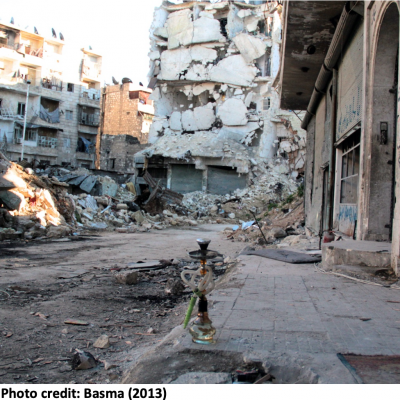Some thoughts on the progress so far, the barriers to further improvement and the way forward, after completing a collaborative policy-focused research project for GIZ.
Towards the end of last year, my colleague Peter Grant and I spent time in Amman, tasked by the German development agency GIZ with developing a knowledge note and policy recommendations to feed into Jordan’s National Financial Inclusion Strategy.
Similar to previous work Agulhas colleagues and I have conducted in Jordan (e.g. the EU Jordan Compact Monitoring and Assessment work in 2019 and 2020), the topic was related to (Syrian) refugees, but unlike previous assignments, this research had a narrow focus: financial inclusion. Agulhas was asked by GIZ, working together with UNHCR and WFP, to analyse the state of financial inclusion for refugees and asylum seekers in Jordan. We were to:
- document progress made to date
- identify the barriers to further expansion of financial services for refugees
- analyse how to expand the networks of merchants and mobile phone agents who provide mobile wallet services for refugees
- develop practical policy recommendations and help feed into the new National Financial Inclusion Strategy to be published by the Central Bank of Jordan later in 2023.
Agulhas partnered with regional research firm Mindset in delivering the assignment. The culmination of the project was a workshop in Amman, where we presented a knowledge note and the participants produced a communiqué for the way forward – you can find the knowledge note here.
Background
Let’s take a step back and understand the current context. The Syrian crisis started in 2011, and has now been ongoing for more than a decade (check out our other blog on ten years of the Syrian crisis). At the moment, around 660,000 UNHCR-registered Syrian refugees live in Jordan.[1] Currently, they are not allowed to open a bank account, but can open mobile wallets, which are electronic financial accounts accessible through a mobile application. Previous research has found that real financial inclusion can improve livelihoods and strengthen resilience among low-income households.[2] Financial inclusion also contributes to the well-being and dignity of refugees, as it allows them to build strong social, economic and cultural ties with their host communities and rebuild their lives with dignity. Mobile wallets not only provide a way of transferring funds to refugees, but can also set them on a path to financial independence with the potential to access services such as bill payments, savings and international remittances. In the longer term, mobile wallets can be part of a pathway for refugees to obtain a credit rating and take out loans to promote business development.
The Central Bank of Jordan (CBJ) first took the initiative to promote financial inclusion in 2015 and in response to the Maya Declaration (a global initiative for responsible and sustainable financial inclusion that aims to reduce poverty and ensure financial stability for the benefit of all). The aim of “providing the refugees and non-nationals with access to digital financial services” is among nine national targets the CBJ has set. The CBJ has launched several initiatives aimed at including vulnerable groups and its National Financial Inclusion Strategy 2018-2020 identified refugees as one of the target populations.[3]
Findings
Our Knowledge Note summarised and synthesised both primary and secondary research. Some of the key headline findings can be found below:
- Jordan has made considerable progress in promoting digital financial inclusion for refugees since 2015. It remains early in the movement towards financial inclusion in Jordan, but there have already been many success stories. One renowned example is Cairo Amman Bank. It has been a world leader in iris scanning technology, which underpins many of the systems now being used with refugees.
- For refugees, UNCHR has led the way among humanitarian agencies since 2018 in moving its clients to mobile wallets. By September 2022, UNHCR provided regular cash assistance through mobile wallets to over 30% of refugees living out of camps and 95% of refugees in Azraq and Za’atari camps. WFP is now also rolling out the use of mobile wallets to its much wider client base. Most refugees, however, are yet to obtain a mobile wallet and access is restricted to Syrian refugees, since most non-Syrian refugees do not have the necessary documentation. Of mobile payment users among refugees, 63% are male and only 37% female.
- Extending the network of agents and merchants accepting digital payments has been difficult, especially in refugee camps and remote rural areas. Progress has been made, but challenges remain to ensure adequate profitability and liquidity for agents and to achieve national coverage of services.
- Most refugees are in debt and many lack the financial resources to be able to take advantage of financial services available through mobile wallets. There is a strong preference for cash in all segments of Jordanian society and the change to digital financial services will take time. There is need for more training and awareness raising. More attention has to be paid to other excluded groups, including non-Syrians, the elderly, disabled and illiterate people.
- Refugees also raise concerns about the reliability of the mobile payments system and whether others will have access to their private data through the mobile wallets.
- The COVID-19 pandemic has created significant opportunities in accelerating the financial inclusion agenda in the country. The inability of people to meet face to face during lockdowns was a major driver of innovation and evolution for digital financial services, including those for refugees. A range of employers, humanitarian agencies (such as WFP and UNHCR) and the National Aid Fund all made moves towards introducing mobile wallets. The use of mobile wallets to receive assistance also reduces overcrowding and travel time to and from ATMs. The coming years will show whether the changes brought about by COVID-19 will be sustained.
Publicity event
Peter was invited to present the contents of the Knowledge Paper at a publicity event. The day consisted of workshops to develop policy recommendations (to feed into the new National Financial Inclusion Strategy to be published in 2023), a plenary session with presentations and a discussion of a communiqué from the meeting.
Some snapshots of the event:
Discussions among working groups (Photo credit: GIZ)

Mr. Amr Ahmad, Head of the Financial Inclusion Unit from the Central Bank of Jordan, giving a speech at the event. (Photo credit: GIZ)

Group photo (Photo credit: GIZ)
If you are curious to know more on the topic, do read our Knowledge Note.
End Notes:
[1] Total registered Syrian refugees (as of 30 June 2023), Operational Data Portal, UNHCR , link.
[2] Mobile money and financial inclusion of refugees in Jordan: hope or hype? Henry J. Leir Institute, July 2021, link.
[3] National Financial Inclusion Strategy 2018-2020, Central Bank of Jordan, link.





